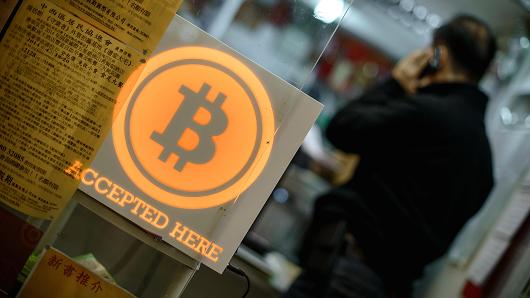
Referred to as the 'honey badger of money'
(after a famous viral video), bitcoin enthusiasts may find this comparison particularly apt of late. Since the beginning of the year, the network's value has nearly doubled — even while the community continues to be mired in debate. Market observers so far have offered a wide range of reasons for this uptick, though not all of them are good, with increasing prices causing concerns that the industry as a whole is entering a speculative bubble.
Supply and demand
Still, not everyone believes the boost is due to speculation. Redwood City Ventures founder Sean Walsh, for example, sent CoinDesk a bullet-pointed email summarizing the various global developments that could be contributing to the bitcoin price surge. He believes developments in South Korea, Japan, Russia, and China have all contributed. The price surge, according to Walsh, is simply supply and demand.
"Bitcoin is dramatically more scarce than most people realize, especially in the context of its total addressable market of nearly 3 billion internet-connected adults," he continued. Walsh framed the situation simply as one where the cryptocurrency is seeing increased demand, which looks to only increase in the future: "Once the global race to own bitcoin commences, the tiny supply of new bitcoins (just 54,000 new coins per month) will be completely overrun by demand,"
he said, adding:
“There just aren't anywhere near enough coins to go around, and pre-existing holders will grasp ever more tightly into this surging market, as perennially dictated by human nature.”
Tensions subsiding
Still, to those following day-to-day technical developments, it might seem odd that the digital currency's price has seen such an upswing amid its scaling debate and a stalled upgrade known as SegWit. Kristov Atlas, a security engineer at wallet and data firm Blockchain, for example, wasn't able to find technical reasons for the uptick in demand.
He told CoinDesk
"I don't see how the price increase could relate to tech changes; no big changes in long term projects like Lightning lately, and the block size stalemate is still status quo."
"It must be something outside bitcoin that investors have changed their minds about," he suggested. While developers, admittedly, might not be experts on economic market conditions, those that have been in the industry for a while are perhaps more aware of how technical developments could contribute to bitcoin’s price. When asked, some argued the state of the technology could have something to do with the recent increase, though, perhaps in surprising way.
For example, bitcoin’s block size debate took a weird turn a couple of months ago, when discussions about the possibility of forking bitcoin into two networks reappeared. This time around, some miners and developers suggested the idea of destroying the chain that didn't follow along with the majority of hashing power.
This has yet to happen, though, and worries about such an event happening have since died down. Some wonder if this could have given the price boost. "I think part of the rally is due to increased confidence that the risk of a contentious hard fork has all but evaporated," Reddit moderator BashCo said. Yet some expect to see a 'correction', where the price dips to a more reasonable place.
The emotion factor
The idea that raised tensions contribute to price swings fits with bitcoin developer and Nakamoto Institute director of research, Daniel Krawisz's view that the price has more to do with emotions. "The price of bitcoin never makes sense and it doesn’t have very much to do with the tech," he said. "It’s about emotion. It’s about greed." Krawisz also sees the price more aligned with bitcoin's original value proposition of giving users more control, rather than more granular tech additions or debates. “It’s not the new features of bitcoin that matter. What matters are the old features? People keep moving into bitcoin because it's a better alternative than their own national currency,”
he said, adding:
"Bitcoin doesn't really need new features, because it's already better."
Though, perhaps echoing other developer's sentiments about a reduction in fear, Krawisz went on to argue that the increase in demand probably has to do with bitcoin's apparent stability, since it’s been around for a long time compared with many cryptocurrencies. "It's the same reason that people always get into bitcoin now as ever," he concluded.
Chuck Reynolds
Contributor
Please click either Link to Learn more about TCC-Bitcoin.
Alan Zibluk Markethive Founding Member











